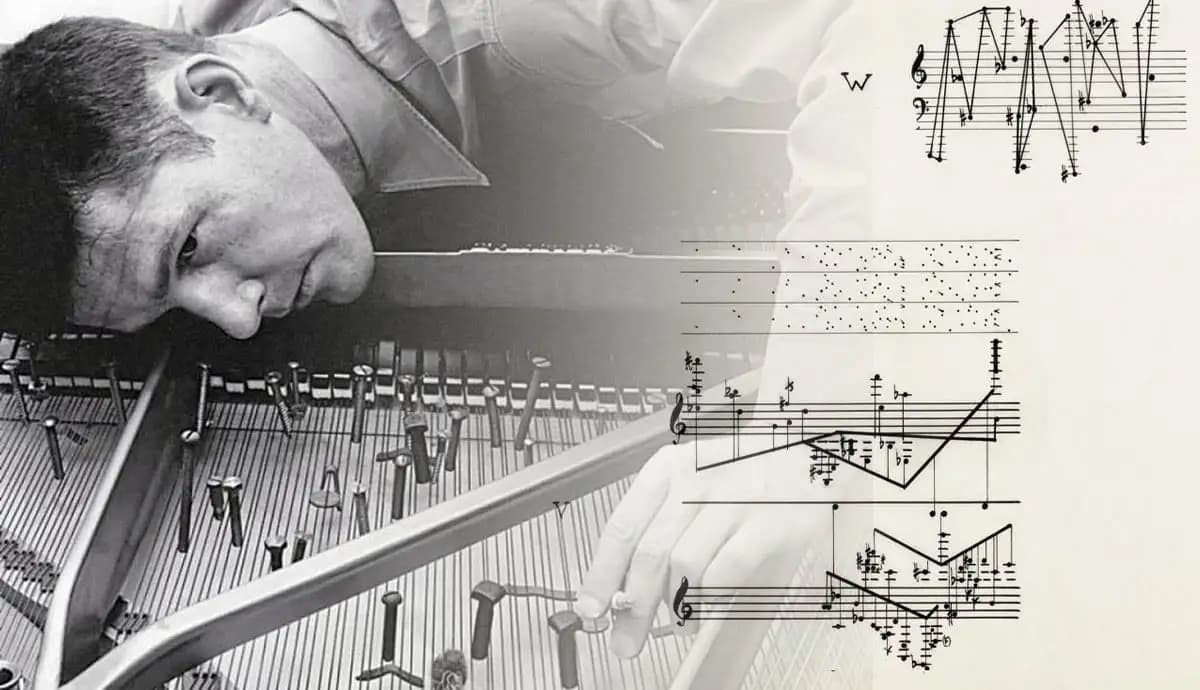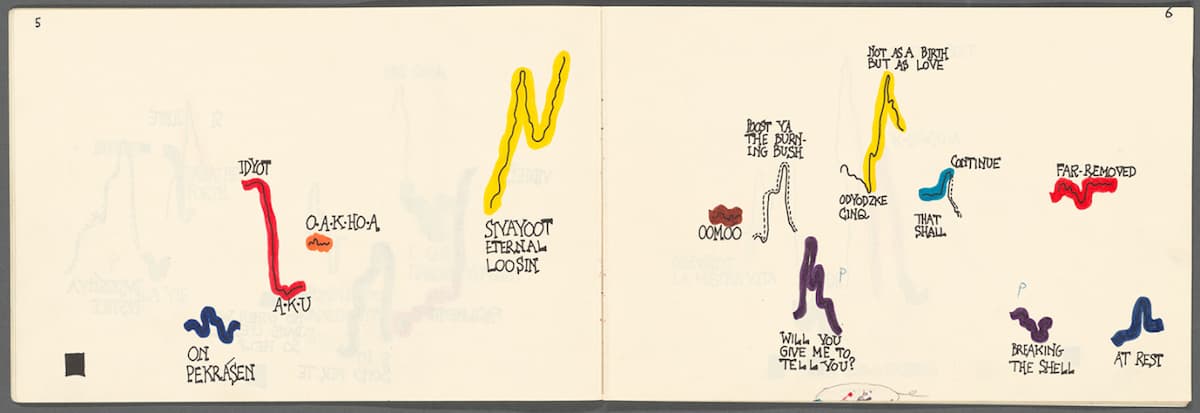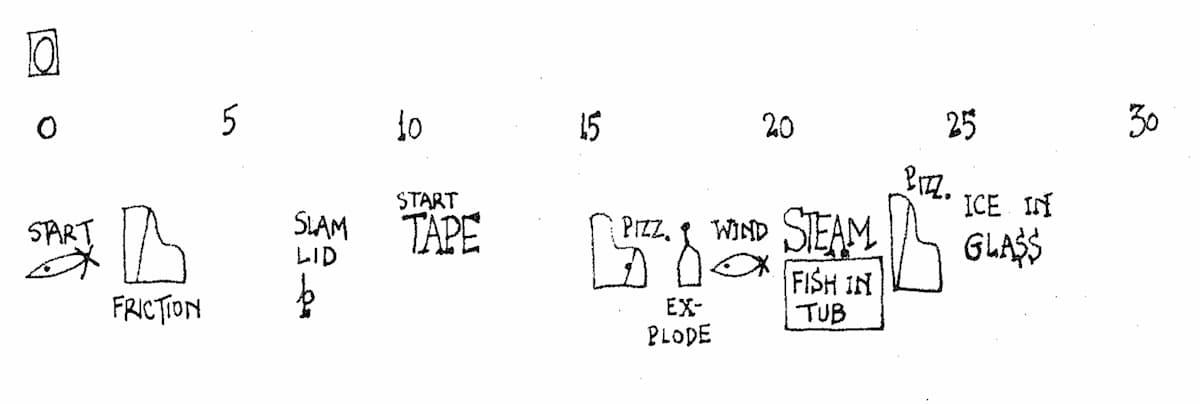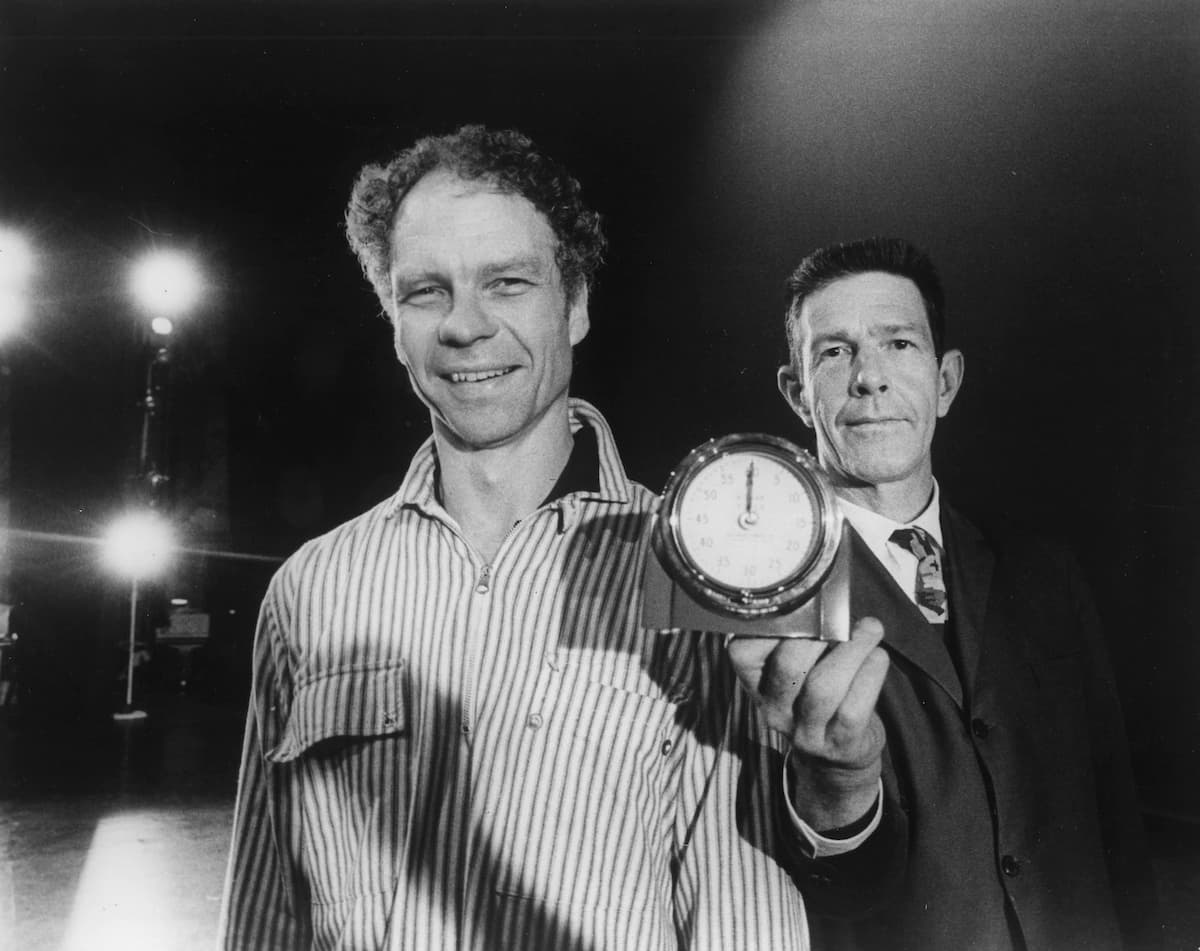One of the most influential composers in the second half of the twentieth century, John Cage (1912-1992) was a leading figure of the post-war avant-garde. A pioneer of indeterminacy in music, electroacoustic music, and non-standard use of musical instruments, he greatly influenced the American art world and general culture. Cage was a devoted follower of Zen Buddhism from the early fifties, and this spiritual dimension held great inspiration for his life and work.
John Cage: 4’33”
Health Problems

John Cage and the prepared piano
John Cage had hardly ever been a picture of perfect health. In the late 1970s, however, things got progressively worse. Following a case of blood poisoning, the toes of his left foot had grown numb, and his arthritis had gotten bad enough that he could no longer pick up a glass with one hand. He was tortured by constant pain, and doctors didn’t seem to have the answers. In fact, it was Yoko Ono who suggested that Shiatsu massage and a change in diet might be the answer.

John Cage: Aria
Cage consulted the alternative medical practitioner Shizuko Yamomoto, who promptly prescribed a macrobiotic diet. This system of food choices and preparation based on an Oriental perspective on total health, aims to avoid foods containing toxins. As Cage reports, “the prospect of following a strict macrobiotic regime put me in a state of shock. I couldn’t imagine a kitchen without butter, a life without beef bourguignon, and a dinner without wine.” However, willing to give it a try his health greatly improved over the course of a month. His weight dropped, and his level of energy vastly increased. In fact, Cage would remain faithful to the diet from that time onward.
John Cage: Child of Tree
Fire of Fragility

John Cage: Water Walk
Cage had been struggling with the onset of arthritis since 1969, and his health issues were compounded by sciatica and arteriosclerosis. His health progressively worsened during the 1980s, and a stroke left the movement of his left leg restricted. He broke his arm in 1985 and was increasingly unable to navigate stairs. As the composer was becoming ever more conscious of his mortality, “the fire which he began to incorporate in his visual work in 1985 is not only the fire he has set aside for so long—the fire of passion—but also fire as transitoriness and fragility.”
When he was asked how he would like to die, he answered “I have no control over that. And I can’t even use chance operations! I simply have to be willing to do it the way it happens. And I wonder if I will… We have no way of knowing.” At some point, Cage had speculated that he might die in an accident, and he therefore lived by the Japanese proverb “every day is a beautiful day.” As he wrote, “The older I get, the more things I am interested in doing. It seems perfectly natural to explore every single thing I possibly can because I’m not going to be here much longer.”
John Cage: Water Walk
Death and Legacy

Merce Cunningham and John Cage
On 11 August 1992, while preparing evening tea for himself and his partner, the dancer Merce Cunningham, Cage suffered another stroke. He was taken to St. Vincent’s Hospital in Manhattan, where he died on the morning of 12 August, only weeks shy of his 80th birthday. His body was cremated and the ashes were scattered in the Ramapo Mountains, near Stony Point, New York, at the same place where he had scattered the ashes of his parents.
Cage famously declared “my favourite music is the music I haven’t yet heard. I don’t hear the music I write. I write in order to hear the music I haven’t yet heard.” And he added, “We are living in a period in which many people have changed their minds about what the use of music is or could be. Something that doesn’t speak or talk like a human being, that doesn’t know its definition in the dictionary or its theory in the schools, that expresses itself simply by the fact of its vibrations.” Cage predicted that the future of music would be open-ended and diverse, celebrating variety and expanding into many unpredictable directions. And Arnold Schoenberg rightfully called Cage “not a composer but an inventor of genius.”
For more of the best in classical music, sign up for our E-Newsletter
